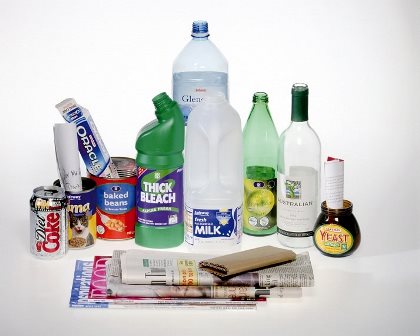OPINION: I love regulation, I think good regulation is great. Good legislation, helps us, it protects us and ultimately it underpins the fabric of our society and creates an environment that we all want to live in. However ill thought regulation or bad legislation can be damaging, and despite its good intention, it can often have far reaching unintended consequences.
Firstly, I believe that all of the intentions within the current environmental consultations are good.

It’s difficult to argue against any of Defra’s desires to create a sustainable circular economy that ultimately leads to a better environment and if better regulation is the driver that is needed to achieve these goals then that should be embraced by all stakeholders.
But…most nations (including the UK) it’s fair to say have a history of introducing policy with good intention that unfortunately leads to completely different and not always positive outcomes. The single use plastic bag charge is an example… it’s been great as a driver for reducing a particular litter stream, but as a mechanism for reducing plastic in the environment, it’s been fairly hopeless. Largely due to the massive rise in the sale of bin liners that have replaced the carrier bags we once used to hold our rubbish. Bin liners contain a lot more plastic than single use bags and therefore the amount of plastic waste in circulation has increased – it’s a classic case of the unintended consequence of good intention and don’t even get me going on the environmental impact of bags for life or hessian tote bags!
The Government has introduced its waste and resource strategy, a 25 year plan that seeks to overhaul the UK’s environmental landscape. In order to achieve the Governments ambitions, a series of consultations have been tabled and so far we have had four consultations, so let’s look at the Key areas within the consultations and consider what is needed to ensure that unintended consequences are kept to a bare minimum or avoided all together.
Firstly, I don’t have the answers! I’m not going to attempt to give you the answers, but I do want to make you aware of some of the points that have been made to me over the past couple of months.
What are we trying to achieve?
“To make the UK a world leader in terms of competitiveness, resource productivity and resource efficiency”. Michael Gove – Environment Secretary
So far, to help achieve these ambitions, we’ve embarked upon some key policy drivers outlined in four different consultations. They are:
- Extended Producer Responsibility (EPR) reform
- Consistent collections
- Plastic Tax
- Deposit Return Scheme
The consultations are huge, combing over 300 questions, if you pick the bones out of them, their fundamental aims are:
-
- Make packaging more environmentally sustainable
- Make obligated producers finance the cost of collection, treatment and recycling with a system approach that rewards good behaviour and penalises bad behaviour
- A system that relies a lot less on the export of material. Making the UK more self-sufficient with better quality recycled material.
- Better labelling and advice to consumers
- Meet ambitious targets
- Consistent collections and better quality recyclate throughout the whole of the UK
- A system that tackles litter
- A system which incentives the use of recycled content in packaging
All of these points are great, none of which you can argue against. However there are a number of issues and hurdles that we’ll have to overcome in order to turn these policy aims into a reality. The first issue is cost. The cost implications are massive, to put this into perspective, current spend on existing producer responsibility (The PRN system) this year will be around £175 -£200m and this is highest it has been since 1998. The estimate cost of the new system, including proposals for a deposit return scheme are in excess of £4 billion!
Producers

Producers will likely end up paying up to 10 – 20 times the current costs of compliance with the PRN system. Which may not be a bad thing, but they are going to expect (and quite rightly so) some sort of return on their investment.
To achieve this, there are different options of governance models including a monopolistic Government managed system, a national deposit system and a competitive approach. If the new regime requires producers to invest a lot more money into the system, then it’s only fair that they get value for money. Competition is vital to ensuring value for money and will drive efficiencies through the system. Competition has been a key driver to keeping costs to a minimum in existing Producer Responsibility regimes and it is only fair that competition is used to minimise the increased costs of the new system.
Transparency has been touted as an essential element in making the new system work and yet speaking to different stakeholders, transparency appears to mean different things to different people. A transparent system which enables the costs to be fully traced throughout the entire supply chain, so that anyone can see how where and how the money is being spent is seen as a positive move, and one that will appease critics of the existing PRN system. However, speaking to producers who are likely to be paying huge sums into the new system, they point out that just seeing where the money goes doesn’t change or help maximise efficiencies in the system or control the costs. I suspect that what Producers want is a system that gives them control, and there are concerns that the meaning of transparency and control have been confused.
Questions
Questions have been asked around who in the supply chain should foot the bill. We need to make sure that an adequate number of producers are obligated to dilute the cost; there is a train of thought that suggests one person in the supply chain paying the entire cost is better placed to influence the design of packaging for better environmental outcomes, than a number of people within the same supply chain. This does makes sense to a degree, but at the same time we must avoid the unintended consequence of having a system which increases cost by a factor of 20, but reduces the number of participants paying the bill.
Perhaps, most importantly, we must make sure that the introduction of EPR does not merely become a refinancing exercise, whereby the existing costs are simply transferred from central government and tax payer funding to the obligated producer. If this were to happen then the unintended consequence could be a stagnated system, with no new money to drive infrastructure changes and innovation – we’d simply have the same collection and recycling systems as we currently have, albeit one that is now funded by the obligated producer instead of you and I through our taxes.
Making the UK more self-sufficient and less reliant on the export market is a noble cause. It’s difficult to argue against the principles, but if this is going to work, then we need to ensure that there is a sustainable end market for the recycelate that we intend to produce. Are we confident that we can produce a bag of plastic granules competitively so that we can compete on the global market- bearing in mind that I suspect that most of the potential buyers will be in the Far East and not the UK. We do not want to spend huge amounts of money extracting and recycling the material from the waste stream to be left with mountains of plastic granules that nobody can afford to buy. Unless more money is raised from the producer to subsidise this – but wasn’t price support a criticism of the current PRN system and something we want to avoid?
Labelling

Good communication and labelling that educates the consumer is a no-brainer. Can you imagine a world where the difference between made from 100% recycled material vs 100% recyclable is fully understood? Information printed onto the packaging telling you whether it can be recycled or not and where, would be ideal, but none of this can happen without a consistent collection network across the entire United Kingdom. I suspect it would be impossible to have packaging printed to accommodate regional variations in collection infrastructure, and therefore, whether we like it or not all devolved administrations and all local authorities have to work together to deliver a nationwide consistent approach.
Without a consistent approach, the message printed on the packaging probably won’t able be delivered and that won’t get passed by trading standards and advertising regulations. This will lead to vague meaningless recycling messages that could disenfranchise and confuse the consumer which risks putting us back to square one again.
Clearly consistency of collections throughout the entire UK is key to ensuring the successful introduction of EPR. I do have concerns when questions asked about existing PFI agreements and other contractual considerations are answered with ‘We’re not sure about that yet’ and I’m doubly concerned about the difficulties around changing entire collections systems within the time frames required in the consultations? I was speaking to a Local Authority who had to introduce a charge to a service it was previously providing for free – that surely can’t be too difficult? It cost £200k and took over 9 months just to rollout that simple change and we’re looking at introducing change on a national scale by 2023. This example is not a criticism, it just a statement of fact to demonstrate just how long it can take to implement change.
Chancellor
In 2018, our Chancellor made a statement regarding the introduction of a world leading tax on plastic that does not contain recycled content.
The plastic tax consultation has great intentions and one that will hopefully drive the market for recycled material. Although the value of the tax has not been discussed, the level of minimum recycled content has been suggested to be set at 30%. Whether a tax is too much of a blunt instrument is a moot point, but already there are potential unintended consequences; most notably is the position that exempts pre-filled packaging imported into the UK. I am told that this is due to import tariffs and import codes, but in simple terms, goods packed abroad and imported into the UK will have a competitor advantage over products manufactured and packed in the UK – surely none of the intentions of the proposed tax is to make UK products uncompetitive?
I mentioned earlier about good and bad regulation. One of the keys to successfully implementing good legislation is the ability for the regulator to regulate effectively. I am told that there is no test available that can determine the level of recycled content in a product. So I’m not entirely sure how claims can accurately be validated.
And what about the packaging manufacturers, who through other pieces of legislation are unable to introduce recycled content into their products – there’s no mention of tax relief for them.
Deposit Return

Finally, England has stated that it intends to introduce a deposit return scheme, Scotland has gone one step further and has announced the details of its plans in the Scottish Parliament. The intentions are great. Reduce litter, incentivise people to recycle, deliver better quality material for recycling and so on. However, concerns have been already been raised about the DRS interfering with existing recycling systems and the detrimental effect that will have on Local Authority recycling rates.
Perhaps even more alarming are the economic arguments. A recent study by the Institute of Economic affairs has called for the scheme to be dropped as the costs do not outweigh any of the benefits. An initial set up fee of £2bn and annual running costs of £800m versus an estimate income of less than £100m. Hardly a compelling argument!
Hats off to Scotland for taking the initiative, but couldn’t they have just waited to ensure that we are all singing from the same hymn sheet? As one commentator put it, the chances of a joined up approach between Scotland and the rest of the UK regarding a DRS a distant prospect. So could we end up with an inefficient, costly, dual system that ultimately ends up costing the consumer more and fails to deliver? It’s the unintended consequences of good intention again!
Where now?
So where does all this leave us?
I genuinely think that we are on the brink of something that has the potential to be amazing, ground breaking, and something that will make a difference. Yes, there’s a need for change, yes, it’s going to cost more and yes, there is a lot of work to be done.
I believe that all stakeholders working together may be able to make this work. I think utilising the commercial success of the waste industry, healthy competition and development of the end markets is crucial. I also know that we must try everything we can to avoid getting swept along in a misguided political whirlwind, and ultimately, we must try our hardest to avoid the unintended consequence of good intentions.
AUTHOR: Paul Van Danzig is the Policy Director at Wastepack











Subscribe for free